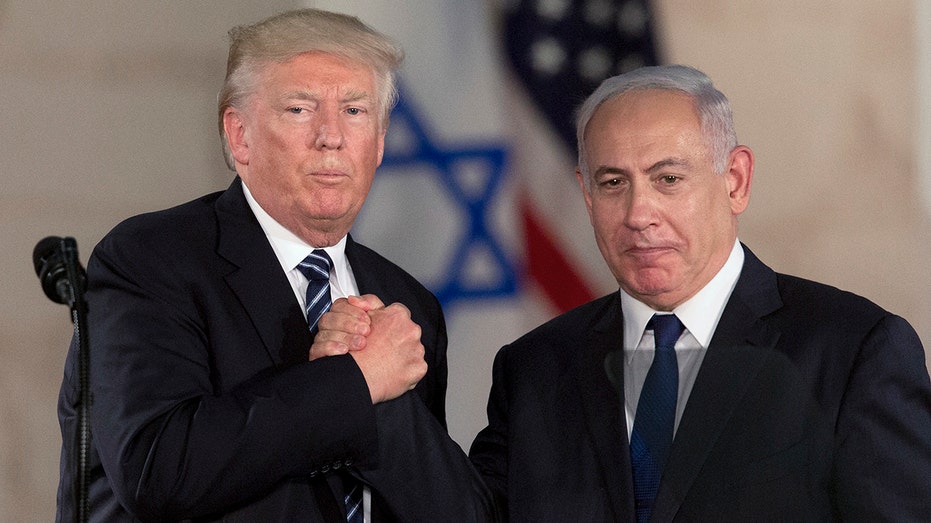
Veteran diplomat Shahar Azani writes that the hostage deal between Hamas and Israel coming just days before President-elect Trump takes office is no coincidence.
Incoming President Donald Trump has repeatedly issued stern warnings to Hamas in the past few weeks, saying that there will be “hell to pay” if Israeli hostages are not released by the time he returns to office on Jan. 20. Wednesday’s announcement that an agreement between Israel and Hamas was near, providing for a temporary cease-fire and the release of 33 Israeli hostages, made clear that the “Trump Factor” played a pivotal role in pushing this deal forward.
TRUMP PROMISES ‘HELL TO PAY’ IN MIDDLE EAST IF HOSTAGES ARE NOT RELEASED BEFORE HE TAKES OFFICE
These 33 Israeli hostages lates to be freed under the deal, along with 65 others still held by Hamas in Gaza in sub-human conditions for the past 466 days, were snatched from their homes and their beds on a Saturday morning of the Jewish holiday of Simchat on October 7, 2023. Ever since that day, their names and faces have become one with the Israeli collective. Their stories have become our own. Israelis are immensely grateful to President-elect Trump for his commitment and tenacity, as well as to the thousands of brave Israeli men and women of the IDF who have risked life and limb to resurrect Israel from the horrible failure of that fateful day.
The hostages’ return is both painful and joyous for Israelis traumatized by the war. Reuniting those innocent people with their families brings tears of joy to our eyes, knowing well the kind of torment, suffering, torture, and abuse they suffer at the hands of Hamas’ merciless and cruel captors. Yet, it is also a harsh reminder of the magnitude of Israel’s failure and of the need to guarantee that such an event never happens again.
Trump’s “hell to pay” was a clear message not just to Hamas, but to all rogue actors of the Middle East. It was a manifestation of the incoming administration’s clear moral vision and ability to tell right from wrong, a vision that has the chance to herald a new episode in the future of this tumultuous and fickle region. A clear line stretches between this statement and January 2020, when, at the direction of then-President Trump, the U.S. military took out Qassem Soleimani, commander of the Iranian Islamic Revolutionary Guard Corps-Quds Force.
Soleimani was the architect of evil, responsible for the Islamic Regime’s “Ring of Fire” doctrine, surrounding Israel with hostile forces including Hamas in Gaza and Hezbollah in Lebanon, as well as supporting other nefarious terrorist forces, such as the Houthis in Yemen. The assassination of Soleimani sent shockwaves through the region and the ranks of the Islamic Republic’s leadership, which promised revenge against Trump himself and senior officials in his administration.
CLICK HERE FOR MORE FOX NEWS OPINION
In launching the barbaric and ferocious Oct. 7 attack against Israel, Hamas’ leader, Yahya Al-Sinwar, was hoping to see all elements of this “Ring of Fire” converge and attack Israel in a desire to change the Middle East forever. 466 days into the war, it is clear that the Middle East has changed forever, but in the opposite direction.
Iran and its proxies have suffered significant setbacks. Hamas in Gaza has been decimated. The Assad regime in Syria was toppled, and in Lebanon, a new president and prime minister have been elected, both against the will of a much-weakened Hezbollah.